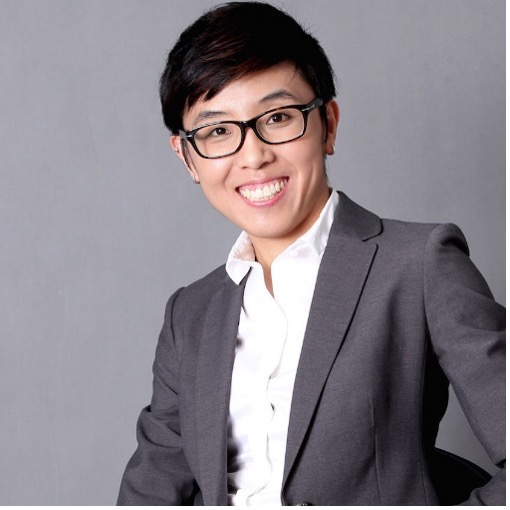Auckland U – HKU Joint Webinar (28 November, 2024)
Abstract
Talk 1 (by Prof. Kevin Tai):
Transpositioning in Multilingual Classroom Interaction: Insights from a translanguaging perspective
Abstract: The concept of “transpositioning” is a newly emerging idea in the realm of Applied Linguistics, influenced by positioning theory and the concept of liquid modernity. Transpositioning entails individuals moving away from their predetermined roles and adopting different viewpoints through translanguaging. This presentation aims to demonstrate how an English-Medium-Instruction instructor engages in transpositioning by assuming varied positions to create a hypothetical scenario and participating in collaborative learning with students. I will also explain how researchers can combine Multimodal Conversation Analysis with Interpretative Phenomenological Analysis to analyse the complexity of translanguaging practices. I argue that posits that transpositioning forms a crucial component of the teacher’s classroom translanguaging competence. This competence not only involves the strategic use of multilingual and multimodal resources to foster new knowledge and achieve specific educational objectives, but also demands that teachers selectively draw from their skill set and adjusts their identity positions to adapt to the changing dynamics of classroom interactions.
Talk 2 (by Prof. Danping Wang):
Decolonising Foreign Language Curriculum: Experiences from New Zealand
Abstract: This talk explores the potential of applying critical theories to advance decolonising approaches in foreign language education, promoting inclusivity and equity in knowledge production. My focus is on New Zealand, a settler colonial nation where Indigenous people have faced longstanding racial and educational discrimination. Over the past decades, the New Zealand government has implemented reforms across all levels of education to integrate Indigenous perspectives into the mainstream system. After providing an overview of early childhood education and schools, I will turn to a university-level curriculum transformation project aimed at incorporating Indigenous epistemologies across all academic disciplines. My research focuses on how non-Indigenous teachers and students engage with efforts to embed Indigenous concepts and language into foreign language teaching and assessment as part of a broader effort to decolonise the foreign language curriculum. By employing translanguaging as a decolonial strategy, I examine the fluidity between languages and epistemological frameworks. This approach demonstrates how translanguaging and transknowledging enable the coexistence of multiple knowledge systems, offering a holistic view of students’ diverse epistemic positions and life experiences. In closing, I will highlight the need for continued efforts to support educators and learners in challenging colonial models of language education and assessment.
Speaker
About the Speaker
Professor Kevin W. H. Tai is Assistant Professor of Language and Literacy Education and Co-Director of the Centre for Advancement in Inclusive and Special Education at the Faculty of Education in The University of Hong Kong (HKU). In relation to his editorial positions, Kevin Tai is the Editor of The Language Learning Journal (ESCI-listed Journal; Routledge), Assistant Editor of the International Journal of Bilingual Education and Bilingualism (SSCI-listed Journal; Routledge), and Executive Guest Editor of Learning and Instruction (SSCI-listed Journal; Elsevier). His research interests include translanguaging in multilingual contexts, classroom discourse, language education policy, and qualitative research methods (particularly Multimodal Conversation Analysis, Interpretative Phenomenological Analysis, and Linguistic Ethnography). Kevin Tai is a Fellow of the Royal Society of Arts (FRSA) and a Fellow of the Higher Education Academy (FHEA). He was listed in the World’s Top 2% Most-Cited Scientists in the field of Languages and Linguistics by Standard University Ranking in 2024.
Danping Wang is Senior Lecturer and Programme Leader of Chinese at the University of Auckland, New Zealand. She is also the Director of Auckland Centre for Advanced Research in Chinese Language Education. Her strong leadership in teaching has been recognised by several university-level Teaching Excellence Awards in both Hong Kong (2014) and New Zealand (2023 and 2024) over the past decade. Her research on translanguaging, decolonisation, and Chinese language education has earned prestigious grants from the Research Grant Council in Hong Kong (2016) and the Royal Society of New Zealand (2019). In 2020, she received the Early Career Research Excellence Award from the Faculty of Arts at the University of Auckland. Due to her exceptional teaching and research expertise, Recognizing her outstanding teaching and research expertise, the New Zealand Ministry of Education invited Wang to review the Asian languages curriculum and assessment standards for New Zealand schools. Email: danping.wang@auckland.ac.nz
Time
3:00-4:30
Location
ZOOM (https://hku.zoom.us/meeting/register/tJcodemvrzMoE9TA4r0ODCRlfBiFnsfB_Hm0#/registration)
Chair
Prof. Lianjiang Jiang



